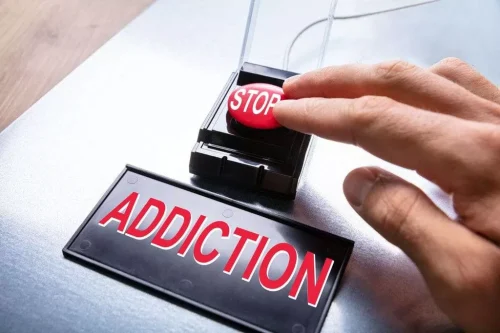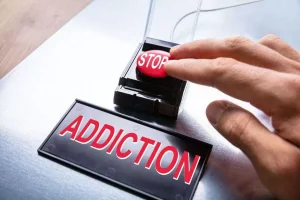
Each test, like urine, blood, saliva, and hair samples, has its own way of showing THC levels. This is why different marijuana detection tests are used in different situations. Infrequent users may have detectable levels of THC in their system for 3-7 days, depending on factors such as metabolism and hydration levels.
What to Know About How Long Marijuana Stays in Your System

Even after a marijuana high wears off, traces of the drug remain in your blood. The tell-tale molecule is THC, weed’s main psychoactive chemical. Others who continue to smoke cannabis may attempt to tamper with their urine, adding chemicals such as pyridinium chlorochromate or peroxidase that eliminate THC-COOH in the sample. Most testing agencies, however, will screen for these compounds and being caught is often just as bad, if not worse, than a positive test. Flegel also notes that he often sees cases where individuals fluctuate between positive and negative tests for marijuana over a period of time.

Differences in Metabolic Processing
With edibles, THC can peak at around 3 hours after eating your edible. This person may fully metabolize it much faster since they so infrequently consume THC. There is no clear how long does weed stay in your system cut answer for how long THC or its byproducts will remain in your body.
- While occasional users may clear THC from their bodies within a few days, regular consumers can expect longer detection windows.
- However, since weight, and therefore BMI, increases with muscle mass, BMI is not a perfect measure of body fat.
- Understanding the relationship between frequency of use and how long cannabis stays in your system is crucial for making informed decisions.
- Certain research has shown that secondhand smoke exposure has resulted in positive tests.
- This study, titled “Brain Function Outcomes of Recent and Lifetime Cannabis Use,” was published in JAMA Network Open on January 28, 2025.
- Note that some drug testing companies will reject overly diluted urine.
Is there a difference in the detection window for THC and its metabolites in the blood?

In this article, we will explore the factors affecting weed detection, and the testing methods used, and provide you with the information you need to make informed decisions. Physical activity and metabolism can help decrease drug detection windows. More activity and increased metabolism times can mean your body fully processes and excretes cannabinoids from your body. Blood-based drug tests screen for a wide variety of illicit substances and have short detection windows for most, meaning they’re typically used to establish very recent drug use. THC can be undetectable by blood test as soon as six hours after it https://ecosoberhouse.com/ enters your system — even though it’s still there in trace amounts — and heavy smokers may test positive for up to 24 hours. If you know you have an upcoming drug test, not all hope is lost.

- THC is detectable for around 90 days in your hair, but in a surprising number of cases, it’s not detectable at all.
- Smoking weed can make you feel its effects fast because THC goes straight into your blood.
- However, THC-COOH in saliva isn’t part of the federal testing guidelines, and it’s only recommended (Cone and Huestis, 2007) to substantiate use, not prove it.
- Hair tests are the most sensitive and the most expensive, but they may also show false positives and measure past use rather than current use.
- As you can see, this is not great news for all you stoners out there wondering how to clean your system of drugs in one day.
- Saliva tests are particularly effective at identifying individuals who have consumed cannabis within the past few hours, making them useful for situations where current impairment is the primary concern.
These factors include your body weight, the amount you take, your tolerance levels, and the route of administration. Wondering how long a high will last or how soon you’ll be able to pass a drug test? In this quick guide, we’ll help you answer the question, “how long does cannabis stay in your system? ” We’ll also help you figure out if there’s anything you can do to pass a drug test faster.
- Yes, the consumption method of weed can indeed affect how long it stays in your blood.
- We’ll also debunk common myths and offer evidence-based tips to speed up the elimination process.
- This is good news if you are undergoing a hematology screening, or if you need to clean your system rapidly.
- It can be present for days, weeks, or even months depending on how much weed you use and how frequently you use it.
This may not be enough to make you feel high but it can mean there are enough trace amounts of cannabinoids to show up in a urine test. There are a few different biological factors that will influence how long THC and other byproducts will remain in your system. These can be factors related to how you consume THC or about your body itself. Drug tests are imperfect and these byproducts can be created by legal substances like over the counter medications. For example, ibuprofen and hemp-based food products like hemp seeds run the risk of triggering a false positive for cannabis use. Understanding how drug tests work can help you protect yourself and accurately communicate with your employer.

Duration of Weed Detection in Blood
Other medications or substances can indeed alter the detection of weed in your blood. Certain drugs may increase or decrease the time it stays in your system, so it’s important to be mindful of any potential interactions. Some people wonder if being exposed to secondhand marijuana smoke will result in a positive drug test. Certain research has shown that secondhand smoke exposure has resulted in positive tests. “As cannabis use continues to grow globally, studying its effects on amphetamine addiction treatment human health has become increasingly important. Heavy cannabis users in the study tended to be male, with a lower educational and social economic status, and were more likely to be smokers and drink alcohol.

